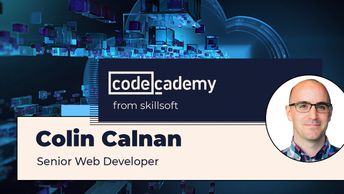Aspire Building Advanced Docker Skills Building Advanced Docker Skills Track 1: Advanced Docker Principles
Docker has revolutionized deployment. It allows developer to build, manage, and secure apps anywhere with ease. In this course, you'll explore advanced Docker principles and practices, which will enhance your skills in orchestrating multi-containers, microservices, and automated deployments. Youâll examine Docker basics, common misconceptions, and the benefits of using multiple Docker containers. Youâll then examine why microservices are needed, service and application decentralization, and how Docker multi-containers work. Youâll learn about common design patterns for managing APIs, delimitation of services, and testing and monitoring. Finally, youâll examine multi-Docker deployment automation and associated best practices.
| Objectives |
|---|
Advanced Docker: Exploring Advanced Docker Principles & Practices
|


